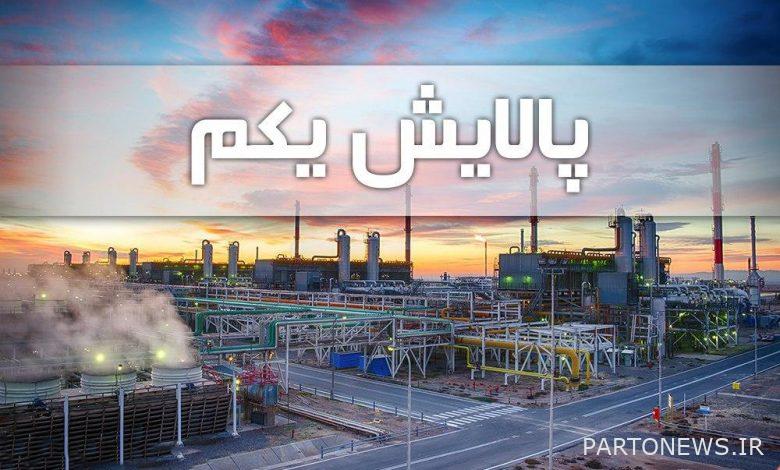Compensation for shareholders of the refinery was forgotten

Once upon a time, and even at the very beginning of the Corona virus, Iranian society was in the throes of a new high-yield market, with long queues forming in front of brokerage registries as well as the SJAM system; The bottom line was that one after another, the country’s officials encouraged people to invest in the capital market, and on the other hand, the capital of people active in this market is increasing every day, and the combination of these cases marked an unprecedented wave of Iranian scholarships. The happy days of the people and the stock market and the green pages of the shareholders’ portfolio, of course, did not last long, and after the index reached about two million, the honeymoon ended.
At first it was said that the market was reforming and this reform is normal and the essence of the stock market, but what was called reform, fell downhill and the stock index fell rapidly and this time reached nearly one million. After this process, a wave of protests took place and the victims, who were a large part of the new shareholders, asked for help and support from the authorities in any way possible, and there was even talk of protectionist laws and regulations, but it seems that all or at least An important part of these promises to support small shareholders has now been forgotten.
The twelfth government left, but the losses did not return, and now the eyes of this group of shareholders are on the government and the president, who even devoted his first election visit to the same stock exchange organization. Examining the promises of Ibrahim Ra’isi and the possibility of their implementation requires another opportunity, but what were the promises of support from the officials in this one year and what was the fate? In one example, about four months ago, the promise of compensation to shareholders who had purchased low-cost units and the first refinement was fulfilled, but the first refinement is still traded below the offering price, and no action has been taken by the stock exchange to compensate these individuals.
ISNA also addressed the issue in a report yesterday, explaining that the bright future envisioned for ETFs, or government-funded funds, was nothing more than a mirage of other capital market shares, and that the funds that were supposed to be justice were reached. To make a profit among the people, to the extent that the buyers of this fund are on the list of the losers, and there was talk of how to compensate their loss! It was the rising days of the capital market in 1399 that the government promised to offer three government funds in the form of ETFs, and it was supposed to be the first banking and insurance fund, the second refining fund and the third automobile and metal fund. The government planned to market the remainder of its stake in some banks, insurance companies, refineries, automobile and steel companies, thereby transferring its shares to the public. These funds were given to the people with a 20 to 30% discount, and any Iranian with a national code could buy them.
Dara one is still in profit
Accordingly, the first fund, named Dara Ik, was launched in the early summer of last year and can be traded on the third of July. In fact, through this transfer, the Ministry of Economic Affairs and Finance, on behalf of the Government of the Islamic Republic of Iran, transferred the remaining shares in Mellat Bank, Trade and Export of Iran, and Alborz Insurance and Amin Reliance. More than four million people took part in the underwriting of the Dara Fund. The fund, which had a significant return in line with the rising days of the capital market, went up to 200% profit. According to the ISNA report, the profitability was such that even despite the significant fall of the total stock index from two million units to less than one million units, the fund was still in profit. Accordingly, the price of each unit with a first day was 10 thousand tomans and each unit of this fund was priced at 12 thousand 350 tomans yesterday.
The first refining transaction below the price of the day of supply
The refining profitability of the first was completely separated from that of the first. The first refinement was the remaining government shares in four refineries in Tehran, Tabriz, Isfahan and Bandar Abbas, the supply of which was keyed by a dispute between the Ministry of Oil and the Ministry of Economy and became an excuse for the market to collapse! This fund was offered, but its supply coincided with the fall of the market. So that the price of each unit of this fund reached five thousand tomans in the days of market decline, which is half the price of the day of supply. These days, although the purchase and sale of this fund has reached equilibrium, but it is still traded below the price of the day of supply and each unit of this fund is priced at seven thousand and 200 tomans.
Extinction of the promise of compensation
Of course, the Securities and Exchange Commission had recently decided to make up for the losses of those who bought the ETF in order to revive the market, because according to Mohammad Ali Dehghaneh Dehnavi, the head of the Exchange and Securities Organization, people usually do not expect losses in dealing with the government. The government, like any other issuer, must support the stock it has offered for up to a year so that the share price does not fall below the daily price; Therefore, it was decided that the new refining share of one or more shares would be given to the ETF shareholders. The promise was supposed to be approved by the leaders of the forces, but has been dormant since about four months ago, and there has been no news of compensation for the buyers of the government’s alliances.

